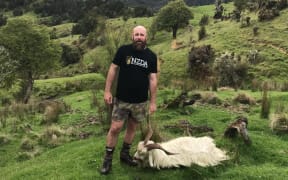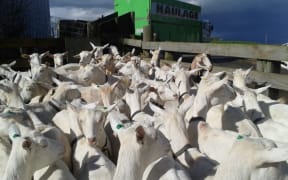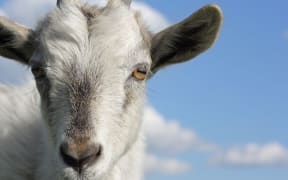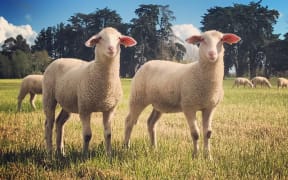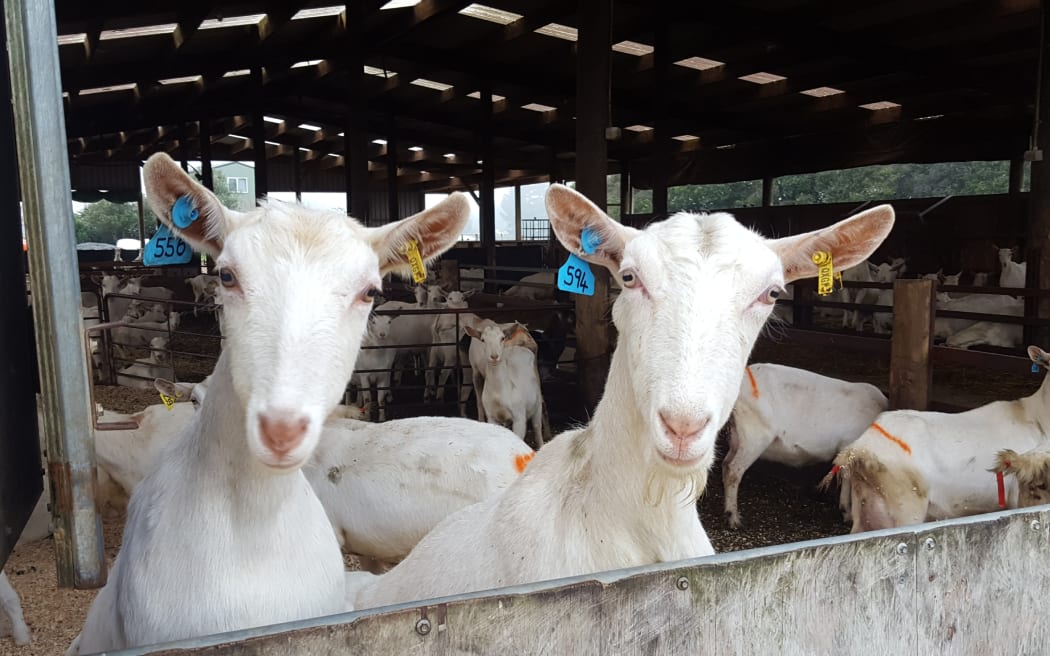
Some Saanen dairy goats. File pic Photo: Susan Murray/RNZ
Another speciality milk producing sector is in turmoil - this time it's dairy goat milk suppliers.
Last week the sheep milk company Maui Milk told its farmers to stop milking as markets for its infant milk formula had dried up.
The dairy goat sector is also facing serious headwinds with farmers selling up because they can no longer cope with low milk payouts and reduced milk volumes.
Shareholder numbers have dropped from 70 in late 2019, to 59 this season.
It's a "total mess", "angry" and "sad" is the reaction from struggling goat milk farmers RNZ spoke to.
This comes just four years after the goat milking sector was buoyant with the traditionally conservative Hamilton based Dairy Goat Co Operative calling for more suppliers and milk.
A 2020 government-backed Sheep and Goat Dairy Project report indicated the sector would grow with mounting global interest in non-bovine milk alternatives.
But following Covid-19 the tables have turned and the Dairy Goat Co-Operative has been struggling to balance supply and demand.
Farmers said they could no longer cope with the uncertainty and many were getting out.
One Waikato farmer, who didn't want to be named because he was loyal to the co-op, said it was heartbreaking seeing things crumbling in the close knit community - but they could not wait any longer for things to come right.
"It's hard to accept you work all your life for what you have, you go under, so your neighbour can carry on [because it would mean lower milk volumes for the co-op to handle]. It's not right," he said.
For the past two seasons the Dairy Goat Co-Operative has asked its farmers to supply only 80 percent of their normal milk volume in order to try and balance supply and demand.
At the same time the payout has dropped from over $20 a kilo of milk solids to $11 this season.
Suppliers under 'acute pressure'
Dairy Goat Co-op chief executive David Hemara said three things have rapidly changed in the infant milk powder scene: the informal diagou selling channel of private buyer to private seller has collapsed, China was encouraging people to be loyal to local products, and the birth rate was dropping.
He said he knew suppliers were under huge pressure and the situation was not sustainable.
"We recognise both the management team and the board of directors are acutely aware that this situation where people are sending in less milk than they would normally be entitled to, and a lower payout price than has been the case for many, many years, puts acute pressure on people, and affects their ability to be sustainable.
"Our focus then has to be both controlling costs in the short term, rebuilding and growing sales, which we know will increase from a sales point of view next year, and also developing a parallel business to our infant formula business, which is to actually sell goat milk products more as ingredients for other food products as well.
"So there has to be a range of those things where we can drive up company performance and improve the payout. And then in doing that, steadily increase the amount of milk that can be supplied. But we have said to our shareholders that will not be an overnight fix, and it will be a grind to work our way forward on all those fronts," he said.
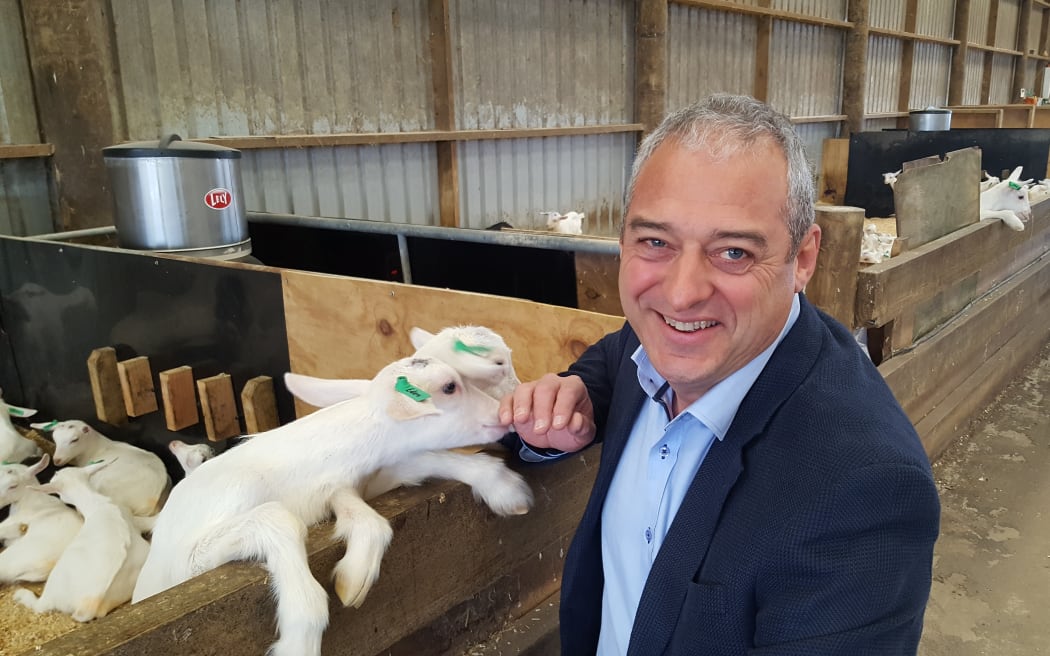
There is no overnight fix for the industry, David Hemara says. Photo: RNZ/Carol Stiles
Hemara said it was a matter of pivoting but he did not believe the co-op had been slow to respond to the Chinese situation.
"The co-op sells to almost 30 markets around the world. So we have consumer markets in Europe and in Asia, a wide wide range of markets. So the time that Covid occurred, we were potentially in a better place to many organisations in terms of market exposures."
He said there was no doubt that the level of offtake from daigou buyers and some of those markets was "very, very large".
"One of the problems is, of course, with those daigou buyers is that it's not easy to control supply. And because the product has simply been purchased from supermarket shelves, in countries like the UK, or Hong Kong, or Australia, so it is difficult to control."
Hemara said the business had tried to maintain open communication with shareholders about the plans and steps that should be taken.
"But it is a huge challenge. It's been an industry and the co-op has performed and grown quietly and steadily over many, many years. So no one in their wildest dreams could have imagined what the knock-on effect would have been from Covid."
The challenge was to broaden the "business space into ingredients as well as consumer packaged products, and then push forward as hard and as fast as we can to improve that performance".
Goat milk powder exports were worth $245 million in the 2019/20 season, dropping to $181m in the 2022/23 year.
